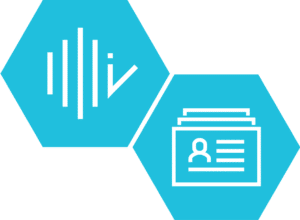As we near the U.S. Presidential inauguration on January 20, 2021, the U.S. population and the world are on edge. In COVID-19 limbo, people are filled with polarized feelings and varying expectations: excitement, uncertainty, optimism, confusion, confidence, betrayal, relief, and much more.
As a global technology partner for corporate legal departments and risk & compliance professionals, we understand that in environments filled with uncertainty, traditional approaches to strategic planning can be downright dangerous to entire client, student, and employee structures.
We took the liberty of gathering Joe Biden’s prior pledges and rounded up previous Democrat actions centered on immigration policies to help paint a clearer picture of what changes could come about under the Biden administration as they relate to the topic of immigration. Read our outlook on three key topics below.
The H1B visa: The lifeblood of America
Joe Biden has been quoted as saying: “The people who have come on this visa have built this country.” There’s no argument that H-1B visas are inextricably linked with the ability of soon to be or currently educated people to become work-centered immigrants and eventually American citizens.
With approximately 75% to 80% of fulltime graduate students in key technology fields at U.S. universities being international students and Trump’s 49% reduction of legal immigration since taking up office, one can easily deduce the damage caused to our international students, their families, their economies, and of course the damage produced to the U.S.’ economic growth and stability.
Since the H-1B remains the only practical way for many people to work long-term in the United States, including international students, we can expect a loosening of regulations around the H1B and naturalization process under the new administration.
Such actions in turn reverse the current outflow of fleeing international students and highly educated workers. Thus, reestablishing an environment of welcoming these individuals and increasing diversity, boosting multinational prosperity, and further encouraging sharing of ideas while building the future world economy.
Minimum wage: Purchasing power and purchasing power parity conversion factor impact
The federal minimum wage, which is currently $7.25 per hour, has not been updated since 2009. Few can survive on such a low income, especially worse is women and people of color are historically paid disproportionately low wages. Biden has pledged to raise the federal minimum wage to $15/hr.
Although not directly a concern of immigration law, Biden’s minimum wage agenda carries massive implications and ramifications for U.S. companies, employees, families, students, industries, and the U.S.’ economic standing as a whole.
As the price of labor goes up, producers must raise prices of goods that they sell. This in turn leads to greater markup of prices for food, gas, rent, and other goods and services while also placing upward inflationary pressure on the dollar further eroding its value and destroying the purchasing power of all who hold dollars. Those that earn fewest suffer most.
Rising inflation makes local goods more expensive and less attractive to customers who increasingly turn to cheaper imports. Higher prices can also reduce U.S. exports due to competition in international markets. for U.S. companies, employees, families, students, industries, and the U.S.’ economic standing as a whole.
Markups of prices also create an incentive for greater machine and automation adoption to replace labor – this is especially worrying since automation of work processes through AI, robotics, and the increased complexity of the IoT ecosystem technologies has already been observed, courtesy of the COVID-19 pandemic. Hamburger-making robots and automated café systems have already existed for years.
Overall, although short term monetary gain may exist for workers, the sharp increase in prices causes the need for more foreign currency units to be used in order to buy into USD and achieve the familiar purchasing power for the same amount of goods and services from which the student/worker originates from. Such a condition allows only the wealthiest students and most hirable people to move and stay in the States.

Political landscape changes: Fixing immigration hurdles may not be a strong focus
Despite Biden’s commitment to halting deportations of nearly all immigrants in the country illegally and placing a moratorium on deportations in the first 100 days of his administration, it’s important to note the other various pressures that the administration will be facing that dwarf the immigration topic.
Although unknown at this time, Biden’s administration will likely be stepping in at a time of leading a nation that is divided and facing a nearly 7% unemployment rate while supporting itself up amid a pandemic that has impacted nearly every aspect of each person’s life.
As an example of Democratic administrations stepping into times of crisis, the Obama administration was forced to act immediately and stimulate the imploding U.S. and global economy while also outwardly focusing on healthcare reform to bring Obamacare to U.S. citizens. To add, while in office under Obama, Biden oversaw an expansion of immigration enforcement as vice president that some sources estimate resulted in the deportation of 3 million people, a number the current Trump administration may still not have reached despite the media frenzy.
It could be argued that individuals mistakenly assumed the Obama years would be better for immigrant communities than the previous Republican administration. This was simply not the case.
With a rapidly shifting political climate, people demanding immigration policy reform may need to apply their own pressure from both top-down and bottom-up methods to drive prioritization of immigration policy transformation that will bring the nation back to who we are as a people since nearly every American who ever lived, with the exception of one group, was either an immigrant himself or a descendant of immigrants.




